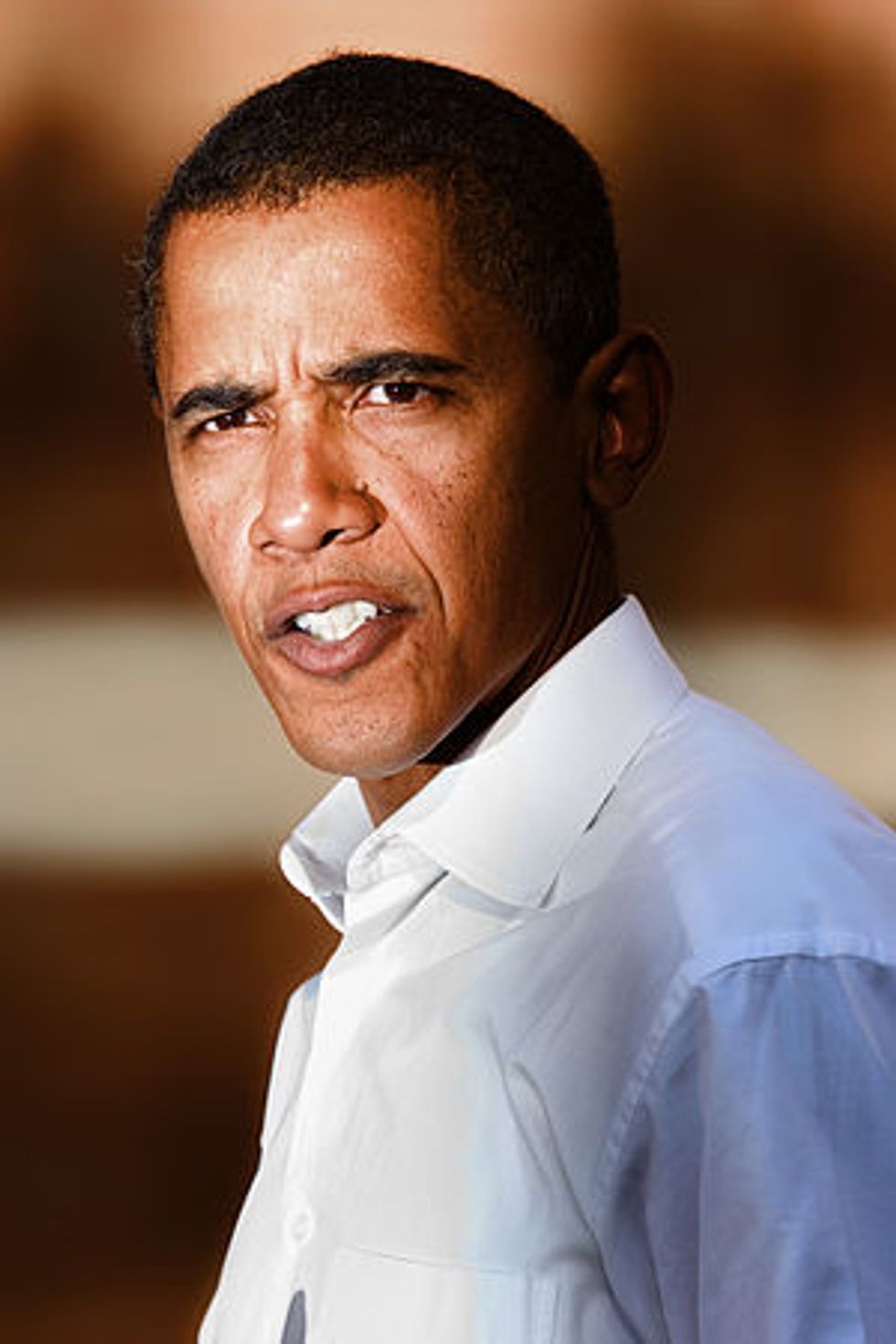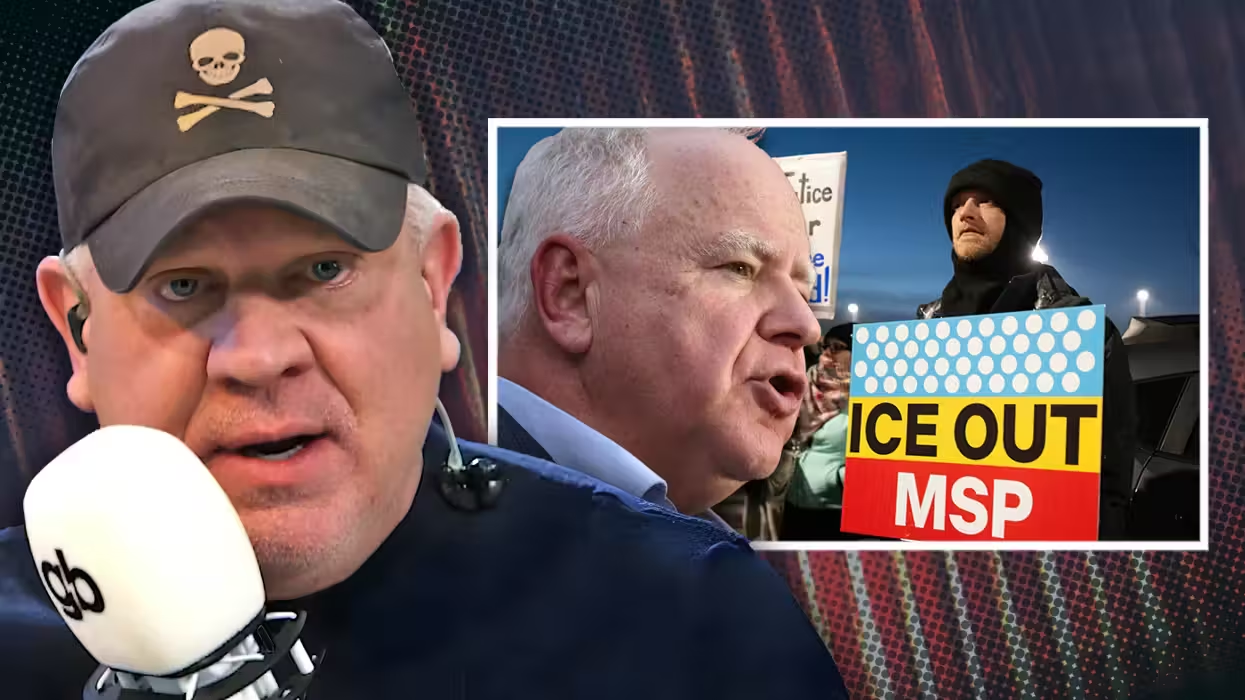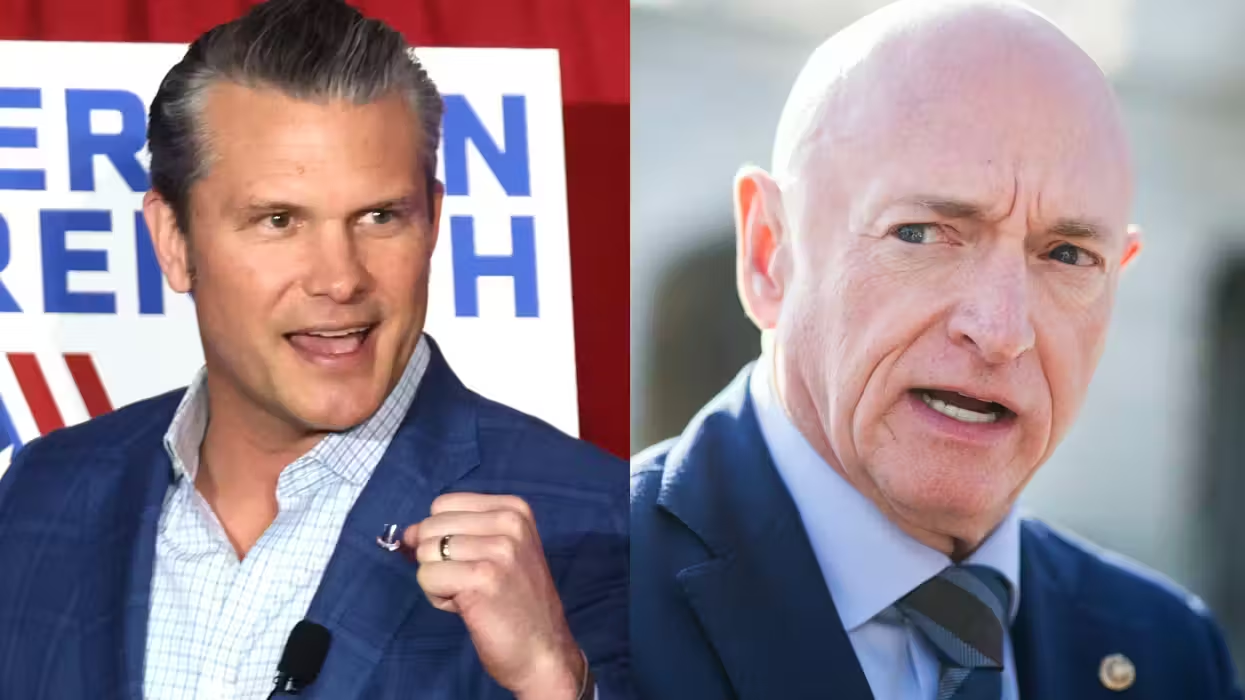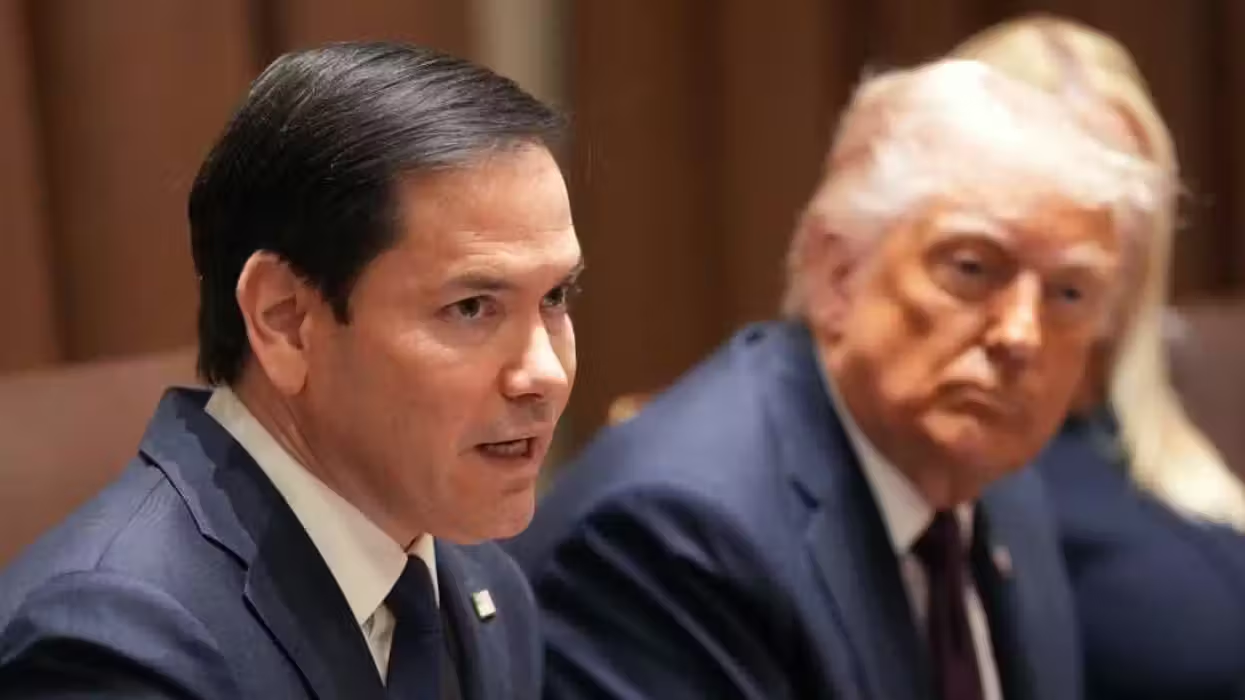© 2026 Blaze Media LLC. All rights reserved.
"...why should we support the president when he did not deliver on many of the promises he made?"

President Barack Obama may be facing an increasingly-challenging general election come November. Over the weekend, some of the progressives who assembled at Netroots Nation lamented his first term, telling reporters that they may refuse to vote for him in November. Jewish Americans, too, have decreased somewhat in their support for the president. And now there are even some questions surrounding Muslim Americans and their support for Obama.
Muslim Americans overwhelmingly backed the president's first presidential candidacy. But 2008 is looking quite different from 2012, as this growing cohort seems increasingly disconnected and confused regarding where it stands on the Democratic incumbent. The Huffington Post has more:
Early in the Obama administration there was little reason for complaint. The president openly criticized the Bush administration's policies of torture, signing of the Patriot Act and excessive surveillance of Muslims, and vowed to shut down Guantanamo Bay within a year. In a 2009 address in Cairo, Obama marked "a new beginning" for the United States, one in which the war on terror would no longer be synonymous with its marginalizing approach to Muslims.But many of the promises have been left unmet. Nearly four years later, Guantanamo remains open, and just last year the president signed into law a four-year renewal of some of the Patriot Act's most controversial provisions. And in some instances, administration policy has alienated the Muslim-American community. The continued drone strikes in Pakistan and revelations about Obama's secret "kill list" of terrorist targets are among the list of policies that have caused some Muslims to re-think whether they will vote for Obama again this fall.
Some leaders and organizations are speaking out and voicing the caution that is present in Islamic communities. Take, for instance, the American Muslim Taskforce (AMT), a coalition of the U.S.'s 13 largest Muslim organizations. While the group endorsed Obama in 2008, so far no such official notation of support has been offered up.

"This year there are many issues that are of great concern, looking at the last four years of President Obama, especially concerning civil rights," explained Naeem Baig, who chairs the AMT. "A good number of people are asking, why should we support the president when he did not deliver on many of the promises he made?"
Now, many may contend that it's not likely that this group would rush to support Republican Mitt Romney either. Even Baig claims that a third-party option in terms of support could be on the table. But the Muslim leader did make it a point to highlight some of the positives that Romney could bring to the Islamic community, while also distinguishing him from other GOP candidates.

"He took on a much lighter tone in the debates and made it clear that people of all faiths are welcome in this country," Baig claims. "Coming from a religious minority himself, Romney could open up and meet with Muslims to try and undo some of his party's damage in isolating, even shunning, the community."
And Muslims do, indeed, have a history of supporting both parties. While many assume that the religious minority is monolithic in its support for political parties, the Huffington Post notes that political alignment within the community has fluctuated:
A significant number of the nation's 2.75 million Muslims live in key swing states, such as Michigan, Ohio, Florida and Virginia. And while younger Muslims rallied around Obama in 2008 and mostly identify themselves as Democratic, the older generation represents a socially and fiscally conservative group that can be swayed in either direction. In 1992, they voted two to one for George H. W. Bush and, although they gave Bill Clinton the same margin in 1996, they were drawn back to the Republican party by George W. Bush in 2000.
You can read the rest of the analysis over on The Huffington Post. Considering September 11 and the events that followed, the Muslim-American community certainly has a fascinating perspective, particularly when it comes to civil rights and their treatment here in America. With that in mind -- and with the notion that this group does, indeed, hold sway in key swing states -- both the Republican and Democratic candidates may find themselves adjusting tone and policy to this reality.
"Although it is true that American Muslims constitute a small percentage of the national population, they are concentrated in key swing states such as Michigan, Ohio, Virginia, Pennsylvania and Florida," Farid Senzai wrote for The New York Times back in April. "Despite being very diverse and far from monolithic, this constituency is growing faster than any other religious community and has become increasingly visible and sophisticated in its political engagement."
In the end, Obama will need to tread carefully -- as will Romney -- while taking the time to explain his policies as well as believable reasons why he didn't make good on the promises he made to the Muslim community during the last election cycle.
Want to leave a tip?
We answer to you. Help keep our content free of advertisers and big tech censorship by leaving a tip today.
Want to join the conversation?
Already a subscriber?
Billy Hallowell is a digital TV host and interviewer for Faithwire and CBN News and the co-host of CBN’s "Quick Start Podcast."
Billy Hallowell
Billy Hallowell is a digital TV host and interviewer for Faithwire and CBN News and the co-host of CBN’s "Quick Start Podcast."
more stories
Sign up for the Blaze newsletter
By signing up, you agree to our Privacy Policy and Terms of Use, and agree to receive content that may sometimes include advertisements. You may opt out at any time.
Related Content
© 2026 Blaze Media LLC. All rights reserved.
Get the stories that matter most delivered directly to your inbox.
By signing up, you agree to our Privacy Policy and Terms of Use, and agree to receive content that may sometimes include advertisements. You may opt out at any time.






